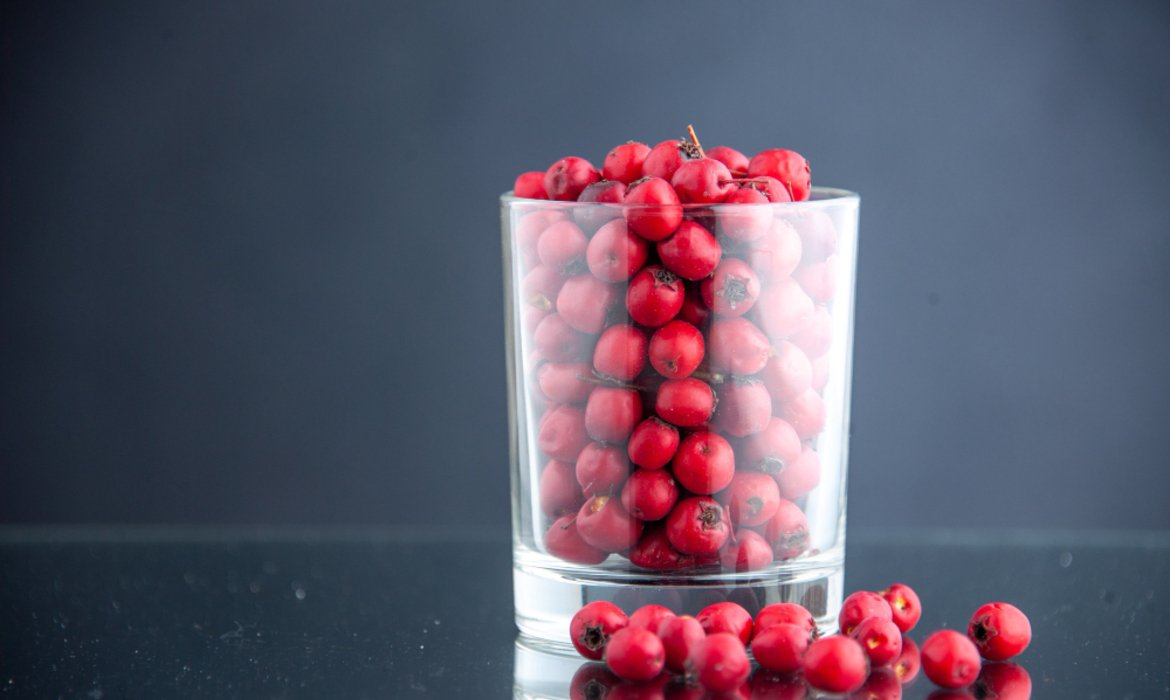
Spanguolės yra mažos, raudonos uogos, turinčios rūgštų skonį ir gausiai turtingos antioksidantų bei vitamino C. Jos dažnai naudojamos sveikatai palaikyti, nes gali padėti stiprinti imunitetą ir apsaugoti nuo šlapimo takų infekcijų. Spanguolės dažnai vartojamos džiovintos ar sulčių pavidalu.
Kalbėti apie spanguolių naudą verta, nes šios uogos yra natūralus būdas stiprinti sveikatą dėl savo gausaus antioksidantų, vitaminų ir maistinių skaidulų kiekio. Spanguolės padeda kovoti su oksidaciniu stresu, stiprina imunitetą bei gali apsaugoti nuo šlapimo takų infekcijų. Šių uogų nauda plačiai pripažinta, tad jos dažnai vadinamos „supermaistu“.
Norintiems patogiai įtraukti spanguoles į kasdienę mitybą, siūloma išbandyti spanguolių miltelius. Tai koncentruotas, 100 % natūralus produktas, kuriame vienas arbatinis šaukštelis prilygsta 100 g šviežių uogų. Spanguolių milteliai gali būti naudojami glotnučiams, jogurtams ar desertams, suteikiant natūralų skonį bei vertingas maistines medžiagas.
Spanguolių milteliai (50–100 g) yra natūralus ir maistingas produktas kasdieniam vartojimui. Pagaminti iš 100 % džiovintų ir sumaltų spanguolių. Vos vienas arbatinis šaukšteliu džiovintų spanguolių miltelių prilygsta 100 g šviežių uogų. Tai puikus pasirinkimas siekiantiems natūraliai praturtinti mitybą be papildomo cukraus ar kitų sintetinių priedų. Be to, milteliai tinka desertams ar mėgstamiems patiekalams, suteikdami rožinę spalvą ir švelnų spanguolių skonį.
Miško spanguolių milteliai (50–100 g) yra alternatyva kultūrinėms spanguolėms, tačiau turi didesnę maistinę vertę, daugiau vitaminų, maistinių medžiagų. Džiovintų miško spanguolių milteliai pagaminti iš miške surinktų, rankomis atrinktų uogų ir apdorojami maksimaliai išsaugant maistines medžiagas. Žemos temperatūros gamybos būdas padeda išlaikyti kokybę ir natūralias savybes.
Abi šių miltelių rūšys yra veganiškos, tinkamos žaliavalgiams, be gliuteno ir pridėtinio cukraus – tai sveikas ir universalus būdas praturtinti mitybą.
Spanguolių naudą sveikatai, galimą šalutinį poveikį, sąveiką su vaistais, tinkamus vartojimo būdus ir papildomus maisto produktus, kurie didina jų veiksmingumą, rasite toliau šiame straipsnyje.
Spanguolės gali būti naudingos sveikatai, įskaitant kovą su oksidaciniu stresu dėl didelio antioksidantų, ypač vitamino C ir flavonoidų, kiekio. Jos gali padėti sumažinti lėtinių ligų riziką ir slopinti bakterijų prilipimą prie šlapimo takų, todėl gali sumažėti šlapimo takų infekcijų (ŠTI) paplitimas.
Spanguolės taip pat gali palaikyti širdies ir kraujagyslių sveikatą, gerindamos cholesterolio kiekį kraujyje ir mažindamos kraujospūdį. Jų priešuždegiminės savybės gali padėti mažinti uždegimus ir skatinti virškinamojo trakto veiklą.
Spanguolės gali stiprinti imuninės sistemos veiklą, todėl jos yra geras pasirinkimas peršalimo ir gripo sezono metu. Dėl mažo kaloringumo ir didelio skaidulinių medžiagų kiekio spanguolės gali būti naudingos reguliuojant svorį, nes skatina sotumo jausmą ir kartu suteikia svarbių maistinių medžiagų.
Galimas šalutinis spanguolių poveikis: virškinimo trakto diskomfortas, sąveika su antikoaguliantais, alerginės reakcijos.
Nepaisant daugybės sveikatai naudingų savybių, spanguolės, dėl didelio rūgštingumo ir cukrų kiekio, gali sukelti virškinimo trakto diskomfortą, kuris gali pasireikšti tokiais simptomais kaip skrandžio sutrikimai, viduriavimas ir dujų išskyrimas.
Asmenys, vartojantys tam tikrus vaistus, ypač antikoaguliantus, tokius kaip varfarinas, turėtų būti atsargūs, nes spanguolės gali sąveikauti su šiais vaistais ir padidinti kraujavimo riziką. Tokius vaistus vartojantiems asmenims būtina pasitarti su gydytoju prieš įtraukiant į mitybą didelį kiekį spanguolių.
Kitas aspektas - galimas alerginių reakcijų atsiradimas. Nors tai pasitaiko retai, tačiau kai kuriems žmonėms, suvalgius spanguolių, gali pasireikšti tokie simptomai kaip dilgėlinė, patinimas ar kvėpavimo sutrikimai.
Kaip ir su bet kokiu kitu maistu, norint išvengti nepageidaujamo poveikio ir tuo pačiu metu pasinaudoti spanguolių teikiama nauda sveikatai, svarbiausia yra saikingumas.
1 puodelyje (maždaug 100 g) spanguolių yra tik 49 kalorijos.
Makroelementai vienoje porcijoje:
Spanguolės gali būti geras maistinių skaidulų, vitamino C ir įvairių mineralų šaltinis.
Maisto produktai, kuriuose gali būti spanguolių:
Įtraukdami spanguoles į savo mitybą, atsižvelkite į šias vartojimo ir dozavimo rekomendacijas, kad gautumėte kuo daugiau naudos sveikatai:
Visada pasikonsultuokite su gydytoju, ypač jei turite sveikatos sutrikimų arba vartojate vaistus, kad spanguolės derėtų su jūsų mitybos režimu.
Vienas iš veiksmingų derinių yra spanguolės su probiotikais, tokiais kaip jogurtas ar kefyras, kurie gali palaikyti žarnyno sveikatą, nes pagerina spanguolėse esančių naudingų junginių įsisavinimą.
Spanguolių derinimas su omega-3 riebalų rūgštimis, kurių yra linų sėmenyse arba graikiniuose riešutuose, gali pagerinti širdies ir kraujagyslių sveikatą. Spanguolių ir omega-3 priešuždegiminės savybės gali sinergiškai veikti širdies sveikatą bei sumažinti lėtinių ligų riziką.
Ciberžolė, kurios veiklioji medžiaga yra kurkuminas, gali sustiprinti spanguolių priešuždegimines ir antioksidacines savybes. Mėgaujantis spanguolėmis ir ciberžole kartu, gali sustiprėti jų nauda sveikatai, ypač mažinant uždegimą.
Spanguoles derinant su citrusiniais vaisiais, pavyzdžiui, apelsinais ar greipfrutais, gali padidėti vitamino C, būtino imuninei sistemai ir odos sveikatai palaikyti.
Spanguolės gali padėti sergant šlapimo takų infekcijomis ir užkirsti joms kelią.
Spanguolių aktyvieji junginiai, ypač proantocianidinai, gali slopinti bakterijų prilipimą prie šlapimo takų gleivinės.
Nors kai kurie tyrimai rodo galimą naudą mažinant šlapimo takų infekcijų pasikartojimą, galutinėms išvadoms padaryti reikia daugiau tyrimų.
Patartina pasikonsultuoti su gydytoju dėl tinkamų prevencijos ir gydymo strategijų.
Spanguolės paprastai laikomos saugiomis nėščioms ir krūtimi maitinančioms moterims, kai jos vartojamos saikingais kiekiais, kaip subalansuotos mitybos dalis.
Jos gali būti naudingos maistiniu požiūriu, įskaitant vitaminus ir antioksidantus.
Tačiau per didelis jų vartojimas, ypač papildų pavidalu, gali kelti pavojų, pavyzdžiui, virškinamojo trakto sutrikimus arba galimą sąveiką su tam tikrais vaistais.
Šių grupių asmenims patartina pasitarti su gydytoju prieš ženkliai padidinant spanguolių vartojimą ar vartojant spanguolių papildų.
Taip, spanguoles galite užšaldyti ir naudoti vėliau. Šaldymas, kaip ir džiovinimas, yra veiksmingas būdas išsaugoti jų šviežumą ir maistinę vertę.